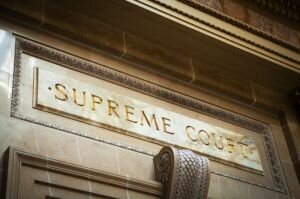Court watchers look ahead to campus liberty case
Religious freedom
Experts differ over whether this week's Supreme Court decision will have any bearing on a case involving campus ministry groups

The unanimous U.S. Supreme Court decision in Hosanna-Tabor Evangelical Lutheran Church and School v. EEOC will end up being a landmark religious liberty case. Experts disagree, however, about whether the decision gives any indication about how the justices might rule on another important religious liberty case that could come before them later this year.
In ADX v. Reed, two Christian campus organizations are fighting San Diego State University's attempt to prohibit them from requiring leaders to agree to a statement of faith. The 9th U.S. Circuit Court of Appeals ruled that the school's position did not violate the Christian groups' constitutional rights, based in part on a 2010 Supreme Court decision, CLS v. Martinez. In that case the high court ruled that a school could establish an "all-comers policy," where all groups are required to allow anyone to participate in a leadership position, without violating a religious group's freedom.
Brad Jacob, a professor at Regent University School of Law, in Virginia Beach, Va., cautioned against making any assumptions about how the justices would vote in ADX v. Reed. The protections offered in this week's ruling only applied to people employed by a church or in a religious teaching position, he said.
"I don't think we're going to get any mileage out of that for campus religious leaders," he said.
But Gene Fant, vice president for academic administration at Union University, in Jackson, Tenn., saw two elements of the Hosanna-Tabor decision that could have a bearing on ADX v. Reed.
In the majority opinion, Chief Justice John Roberts seemed to say that when the state determines what is acceptable religious belief, the state is setting itself up as a de facto national church, Fant said.
"That is exactly what the founders wanted to prevent with the First Amendment," Fant said. "So I thought it was very interesting that the opinion started off by saying that."
Fant also drew encouragement from the link the Hosanna-Tabor decision seemed to draw between freedom of religion and freedom of association. Unions get their power to organize based on the freedoms of speech and association, he said. Unions have the right to organize themselves based on principles, which is where their speech becomes action, Fant said. And that is protected by the constitution, he said.
Although ADX v. Reed has been described as a religious freedom case, it also involves the freedoms of speech and association, he said.
"I've not been optimistic about the ADX case until this one came out," he said. "But this argument is really persuasive in these types of cases."
Although Jacob does not think the Hosanna-Tabor case will have any bearing on ADX v. Reed, he does share Fant's hope that the justices, if they decide to hear the case, will rule in favor of the campus Christian groups.
"It's one thing to approve an all-comers policy," Jacob said. "It changes very much when you're looking at a rule that says only certain groups may not enforce their worldview, their identity and reason for existence on the people involved. Religious groups may not but political groups may. That really looks discriminatory."
